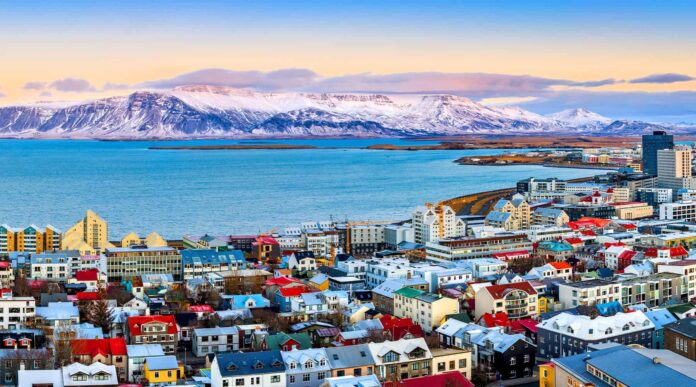
Bloomberg Originals, a Bloomberg brand that focuses on creating short-form content, has released a documentary about Bitcoin mining in Iceland, a jurisdiction that has become very popular among cryptocurrency miners, especially those seeking economic profitability and environmental sustainability.
Iceland, the land of ice and fire as many call it, is currently the largest producer of Bitcoin per capita in the entire world.
The island has huge renewable energy potential from geothermal and hydroelectric sources. The documentary highlights that Iceland runs almost entirely on renewable energy and has historically operated with a surplus, making it an attractive destination for many Bitcoin miners.
Crypto mining companies are currently one of the main buyers of the island's energy surplus.
Iceland's appeal to the emerging digital economy
Iceland offers many opportunities to mine bitcoins profitably and sustainably.
First of all, as mentioned, the island has several geothermal power plants, which are powered by water vapor and generate huge amounts of clean energy.
Likewise, the island has abundant water, so there are several hydroelectric plants that also generate a huge amount of energy.
Another advantage that Iceland offers for Bitcoin mining is the climate. While many of the data centers that operate crypto mining equipment must have powerful cooling systems to dissipate all the heat generated by these hardware equipment, thanks to Iceland's cold climate, Bitcoin miners can regulate the temperature of their farms and data centers naturally.
Additionally, by not having to install cooling units for crypto mining equipment, miners can also reduce their expenses, increasing profitability.
However, despite the many advantages that Iceland offers, there are also challenges on the island for this nascent industry. One of them is the impact that crypto mining could have on the island’s unique ecosystems. As the documentary points out, many environmentalists fear that the installation of a large number of crypto mining farms, and the electricity demand from them, will end up affecting its diverse habitats, causing an ecological collapse.
Bitcoin, an efficient consumer of energy
Despite its energy surplus, Iceland is considering new projects to build more power plants. However, the documentary clarifies that none of these plants are directly intended for Bitcoin mining, but instead are intended to feed other, more harmful industries, such as the aluminum industry.
Bloomberg reporter Naureen Malik noted that aluminum smelting is consuming the most energy in Iceland. “It tends to have a larger negative environmental impact compared to Bitcoin mining.”
On the other hand, the Bloomberg reporter also talked about the potential of Bitcoin mining as a stabilizer of energy networks. Unlike aluminum smelters and other industries, Bitcoin miners do not have to be connected to the power grid at all times and can disconnect from it within a few minutes. Thanks to this, Iceland's unguaranteed energy surplus represents a better opportunity for Bitcoin miners, due to its unique consumption characteristics.
Bitcoin mining in the land of ice and fire
Malik also highlighted that Bitcoin mining companies that have set up shop in Iceland appreciate the country's ability to produce and distribute renewable, carbon-free energy.
“Miners have been circling the globe looking for the cheapest, lowest-cost energy and the cleanest energy sources to reduce their carbon footprint and to reduce their energy costs,” the documentary noted.
Daniel Jonsson, CEO of one of the companies that operates a crypto mining farm in Iceland, highlighted that 99% of his fleet of miners is powered by geothermal energy, coming from volcanoes. “What we do here is mine (bitcoin) with energy created from water and volcanoes,” he said.
Continue reading: Bitcoin Mining: Only 65 Countries Are Profitable to Mine 1 BTC Solo



